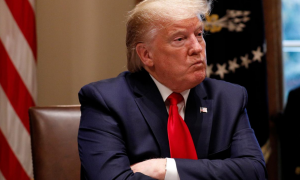很多学生毕业回国后发现,他们的薪水达不到自己预期的标准,新华网报道。一名姓董的海龟发现她虽然持有英国的硕士学位证书却在找工作时遭受冷落。
Many students find their salaries do not meet their expectations when they return from abroad after graduation, reported Xinhua.
A returnee, surnamed Dong, found herself left out in the cold at job fairs in China despite holding a master's degree from the UK.
Dong, who spent about 500,000 yuan ($74,963) for the one-year postgraduate degree, said she thought her salary would be two times that of the domestic graduate, but "actually the salary was more or less the same."
The gap between the investment in foreign education and return, in a narrow sense of the salary back in China, makes it difficult for those coming back to be satisfied with their job.
According to a study conducted by Chinese Service Center for Scholarly Exchange, a public organization under the Ministry of Education, the monthly salary of those coming back from abroad with master's or PhD degrees stands between 5,000 and 10,000 yuan, while those with bachelor's degree or below under 5,000 yuan.
Another Report on Employment Situation of Overseas Returnees in 2014 issued by EIC education, an overseas educational counseling service provider, shows that 96 percent of returnees refused job offers, out of which 62.7 percent rejected due to unsatisfactory salary.
Zhang Li (alias) said while she was busy writing thesis during her study in Australia, the domestic graduates had already found job in campus recruitment. When she came back to China after graduation, she discovered that many sought-after recruiters had stopped hiring. She was eventually employed by a company with her parents' help.
"I was rejected many times. Recruiters did not care about my foreign experience or my English-language skills, which made me doubt whether I made the right decision to go abroad,” said Zhang.
"Foreign companies now pay more attention to localization,” said Zhang Rui, who works at human resources department of a noted American company. "Some companies have even canceled English interview and only require employees capable of daily communication and email exchange in English.”
Zhao also said that except students from a few prestigious business colleges, foreign companies now prefer recruiting domestic graduates.
Apart from salary, another reason that troubles those coming back in search of job is that their majors are either too hot or too cold.
Xinhua reported that most of students going abroad pursue business studies and social sciences. They are expected to compete fiercely for same jobs.
According to 2015 Report on Employment and Entrepreneurship of Chinese Study-abroad Returnees released by Center for China and Globalization, 14.3 percent of returnees were employed in the financial industry, followed by 7.2 percent in trade and retail sales, 6.9 percent in property and construction, and 5.5 percent in internet industry.
For those who started their own business, 18.6 percent of returnees devoted themselves to new bioengineering/new medicine, followed by new generation information technology (NGIT) and trade and retail sales both attracting 13.6 percent of returnees.
Other students, on the other hand, studied some courses that are not popular in China's job market, such as psychology or religion. These majors also felt pressure in job seeking.
What has made the situation bad is that some students' competence has come under spotlight in recent years.
After the 2007 financial crisis, some countries turned education into an industry that will support their economic growth. They expanded enrollment of international students and collected tuition fees to support the running of educational institutions. The quality of these money making machines failed to convince recruiters.
Qi Lixin, President of Beijing Entry & Exit Service Association, said that overseas students usually have an international vision, think independently, adapt rapidly to new changes and are good at communication, which are driving forces in the development of their career whether they are employed or start a business.
Students are expected to complement their knowledge of theory through overseas study and make use of research conditions that are lacking domestically, said Qi, adding that the returnees should "neither be expected too much nor looked down upon".
Some experts said that with the popularization of overseas study, the experience of going abroad will not be as "golden" as before.
Despite returnees adapting to the changes, society should also treat them with reason, creating a favorable environment for returnees to make their contribution to the development of country, said Xinhua.







